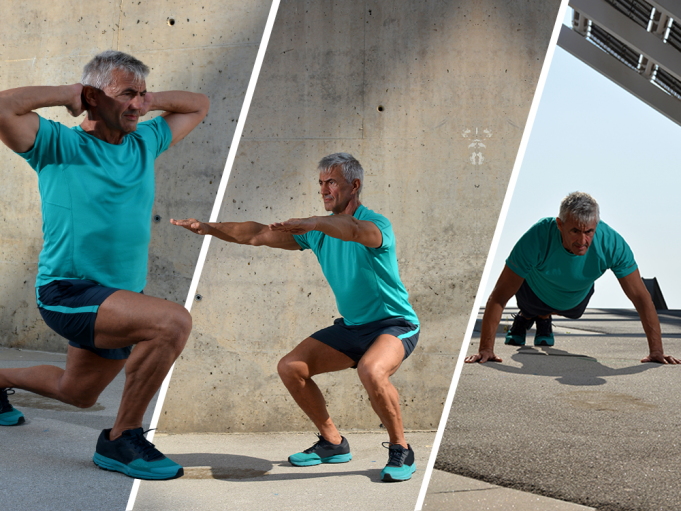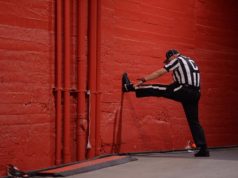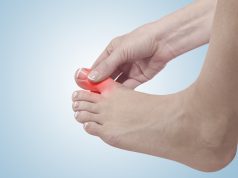Getting ready for an upcoming season is understandably overwhelming, especially if, in your downtime, you didn’t keep up with a training regime.
There are, most likely, things you want to improve upon from your last season but maybe you’re not sure where to begin. Or, perhaps you have an idea but you’re not satisfied with your existing pre-season training program. Maybe you want to make major adjustments, but your current prep plan doesn’t allow for that kind of growth.
Regardless of what goals you have before the next season begins, here are three tips to help you improve your fitness levels as efficiently as possible.
The great thing about these three suggestions is that they’re totally customizable for your specific goals. Though working with a certified trainer would help you get there faster, sticking to the following training points will guide you towards your desired results.
Tip 1: Incorporate more strength training into your preseason workouts
It’s not all about cardio. As a sports official, you need strength training as part of your training regime. Consider all of the elements of your specific position/sport and what it requires.
Sure, you do a lot of running. You need to have your conditioning game on point. Your lungs and heart need to be able to handle the demands you put on it. Part of that, however, is making sure your muscles can handle the load you put on them, the explosiveness you expect out of them and the precision you may need at a second’s notice.
What this means is that your pre-season prep needs to be more than just running. Incorporating the right kind of strength training has been proven to significantly improve the explosiveness you inevitably need during a game 1.
For example, the strength you build in your quadriceps will sustain you better if you have to squat. The power you build in your calves will help you burst into higher speeds more quickly so you can get to the spot you need to be to make the call you have to make.
Being fast is only part of the job requirement. Being strong is a requirement for every athlete, so make sure to have a well-developed strength training plan, as well as a cardio conditioning one.
Bonus tip : Your bodyweight is the best, free equipment you have (especially during these strange, shelter-in-place times). Push ups. Squats. Chinnies. Burpees. Use gravity + your bodyweight and you’ll be sweating in no time.
Tip 2: Have a relatively high training load
You can’t leave your car parked in your driveway for months at a time and then expect it to go from 0 to 60 without some pushback. You can’t expect your body to do the same. If you’ve not been training at all since the last season, your body will need some adjustment time to get back into a training regime that was at your previous ability. You need to ease into things, otherwise you run the risk of soft tissue injuries.
Once you’re able, however, it’s important to focus on a high training load. Due to the need to be ready by a certain date, it’s recommended that sports officials have a relatively high training load during the preseason 3 .
Whether your workout routine consists of cardio exercises and strength training or some other type of training, it still needs to be physically exerting. Why? High training load improves game performance and increases your ability to operate at a higher level even when you’re tired 3 ..
And, if you’re running up to 4-5 miles per game, you’re going to be tired. Best condition your body to be able to operate at peak performance even if it’s getting sleepy.
Bonus tip: If you get bored with your training, mix it up! Your body will adjust quickly to the stress you put on it, so prepare for the changes you’ll need to make to get stronger.
Tip 3: Be consistent – seriously
Rome wasn’t built in a day. Neither is your best-performing self. And, like Rome, you need to be actively putting brick-on-brick to get to where you want to be. Setting up one pillar isn’t enough. You cannot train just a few times in preseason and then expect your body to be prepared to meet the grueling demands of your sport.
It doesn’t matter how intense or scientifically perfect your workout is if you don’t do it regularly. Consistency may not look like 5 days a week, or 4 days, or 7 days. It just means that, day after day, week after week (and yes, month after month), you are actively working out towards your best self so you can perform to your full ability when the season begins (and not gas out before it ends).
The good news is that the more you train during the preseason, the more likely your body will respond positively. And, like with number 2, you’ll only get out of it what you put into it. Your workouts can’t be half-effort. If you want to perform at your best, you have to give it your best.
And, that best will continue to get better the more you do it.
Bonus tip: Reward yourself (in a healthy way!) when you finish a workout, especially if you didn’t want to do it.
References
1. Wong, Pui-Lam, et al. “Effects of Preseason Concurrent Muscular Strength and High-intensity Interval Training Professional Soccer Players.” The Journal of Strength and Conditioning Research. March, 2010.
https://journals.lww.com/nsca-jscr/Fulltext/2010/03000/Effect_of_Preseason_Concurrent_Muscul
ar_Strength.9.aspx
2. Murray, Nick and T.J. Gabbett. “Relationship between Preseason Training Load and In-Season Availability in Elite Australian Football Players.” Human Kinetics Journals. 2017.
https://journals.humankinetics.com/view/journals/ijspp/12/6/article-p749.xml
3. Gabbett, Tim. “The Training-Injury Prevention Paradox: Should Athletes be training smarter and harder?” British Journal of Sports Medicine. 2016. https://bjsm.bmj.com/content/50/5/273.short
What's Your Call? Leave a Comment:
Note: This article is archival in nature. Rules, interpretations, mechanics, philosophies and other information may or may not be correct for the current year.
This article is the copyright of ©Referee Enterprises, Inc., and may not be republished in whole or in part online, in print or in any capacity without expressed written permission from Referee. The article is made available for educational use by individuals.


















